Drastic changes to government are underway across the globe.
By the year 2020 we will all be governed by a new system of law.

2020 by Niki Raapana with Nordica Friedrich.
 http://nord.twu.net/acl/agenda21.html
http://nord.twu.net/acl/agenda21.html
| "The world needs a new global architecture, additional layers of governance, to deal with issues that neither nations nor traditional forms of intergovernmental organizations can cope with." ("Europe, A Beautiful Idea" by Amitai Etzioni, September 2004 conference at the Hague) |
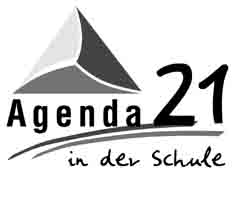
The communitarian plan for reinventing a global government was adopted by the UN in 1992 at the Earth Summit. There were no public votes cast for or against it in any of the affected "free" nations. Average citizens were not consulted. In most free and democratic countries, the nation's taxpayers (who pay for it) were never even told about it. The major media outlets were mostly silent while for thirteen years, the UN's LA-21 laws have been imposed on all 166 member nations.
There were no big discussions of its purpose or ultimate consequences. It just slid into law. It's really pretty amazing. No major editorials, no explanation of how it would be imposed, it was barely announced by the national governments who endorsed it. Only a few enlightened locals understand LA-21 requires a total reorganization of government systems. It eliminates individual rights in the free countries. National systems of political economy are subserviant to LA-21 laws.
The plans are generally thought of as a "good thing." So few people bother to read their new vision for community, even if they know there's a plan. Why should they? It's presented by experts, and none of us common folks are experts, are we? Besides, really nice people promote it as a just, scientific, holistic, grass-roots, non-threatening way of cleaning up the world and making it a friendlier place. The barriers are outdated national governments and the millions of selfish people who cling to the idea of local rule. The entire world must be merged into a communitarian system. Because so many resist, it's best if only a few know about it until the integration process is complete.
"One must act 'as if' in Europe: as if one wanted only very few things, in order to obtain a great deal. As if nations were to remain sovereign, in order to convince them to surrender their sovereignty. The Commission in Brussels, for example, must act as if it were a technical organism, in order to operate like a government ... and so on, camouflaging and toning down. The sovereignty lost at national level does not pass to any new subject. It is entrusted to a faceless entity: NATO, the UN and eventually the EU. The Union is the vanguard of this changing world:it indicates a future of Princes without sovereignty. The new entity is faceless and those who are in command can neither be pinned down nor elected ... That is the way Europe was made too: by creating communitarian organisms without giving the organisms presided over by national governments the impression that they were being subjected to a higher power. That is how the Court of Justice as a supra-national organ was born. It was a sort of unseen atom bomb, which Schuman and Monnet slipped into the negotiations on the Coal and Steel Community. That was what the 'CSC' itself was: a random mixture of national egotisms which became communitarian. I don't think it is a good idea to replace this slow and effective method - which keeps national States free from anxiety while they are being stripped of power - with great institutional leaps - Therefore I prefer to go slowly, to crumble pieces of sovereignty up litle by little, avoiding brusque transitions from national to federal power. That is the way I think we will have to build Europe's common policies..." - Italian Prime Minister Giuliano Amato, later Vice-President of the EU Constitutional Convention, interview with Barbara Spinelli, La Stampa, 13 July 2000. Posted in a great list of quotes compiled by Free Europe.org. |
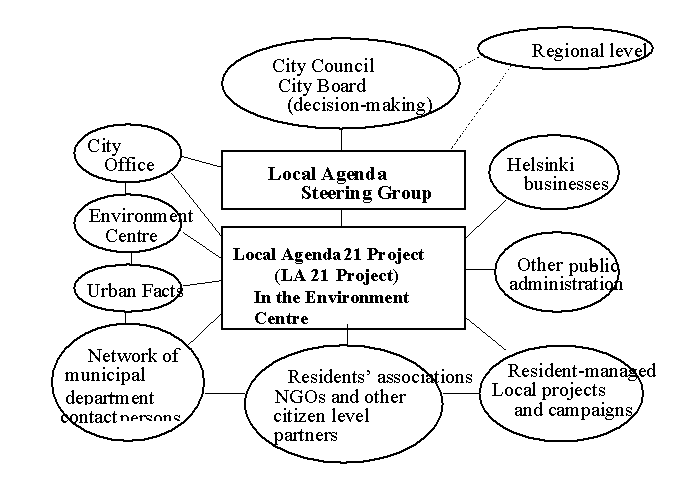
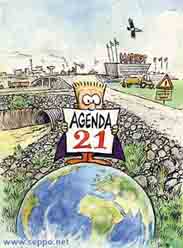 If you are coming here from outside the United States, please know that we are openly opposed to communitarian laws and plans. This site does not support eliminating nations in order to form a one world community government.
If you are coming here from outside the United States, please know that we are openly opposed to communitarian laws and plans. This site does not support eliminating nations in order to form a one world community government.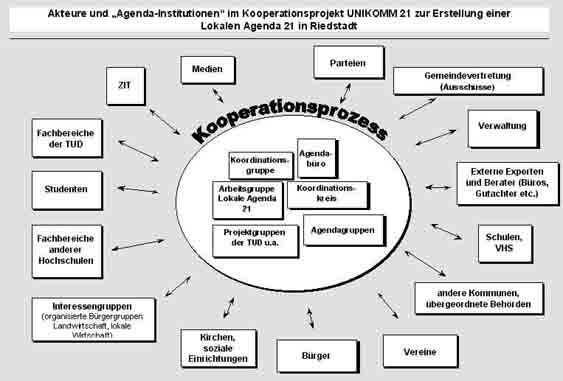 "Without further ado, let the Business Action begin!"
"Without further ado, let the Business Action begin!"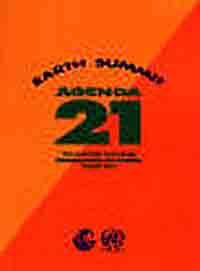 Sample LA-21 Programmes operational in the United States:Community Policing, Landlord Training, Rebuilding Community, Mandatory Volunteerism, Regulatory Inspections, Asset Based Community Development, Rural Development, Urban Re-Development, Re Wilding America, Faith-Based Initiatives, Character Education, government child care,
The Real National ID, and life long surveilliance.
Sample LA-21 Programmes operational in the United States:Community Policing, Landlord Training, Rebuilding Community, Mandatory Volunteerism, Regulatory Inspections, Asset Based Community Development, Rural Development, Urban Re-Development, Re Wilding America, Faith-Based Initiatives, Character Education, government child care,
The Real National ID, and life long surveilliance. U.N. Charter or U.S. Constitution? By Bud Landry, Apr 2, 2004, posted at Magic City Morning Star which has a nice list of Agenda 21 articles by Americans.
U.N. Charter or U.S. Constitution? By Bud Landry, Apr 2, 2004, posted at Magic City Morning Star which has a nice list of Agenda 21 articles by Americans.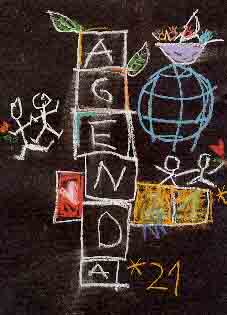 Iraq's Local Agenda 21 Plan. Was this UN plan for rebuilding Iraq written before or after the latest joint US-British-Israeli Operation Freedom invasion?
Iraq's Local Agenda 21 Plan. Was this UN plan for rebuilding Iraq written before or after the latest joint US-British-Israeli Operation Freedom invasion?
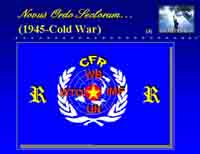 "A new world order must provide for the full and fair participation of the majority of the people of the world who live in developing countries. They must have equitable opportunities to share the benefits, just as they share the risks, of our technological civilization. And surely the highest priority should be accorded to eradication of the dire and debilitating poverty that condemns so many people, particularly in developing countries, to suffering and hunger that are an affront to the moral basis of our civilization. This is one of the primary themes of Agenda 21." Remarks by
Maurice F. Strong Chairman and Chief Executive Officer, Ontario Hydro Chairman, The Earth Council, The European Institute, Washington, D.C., USA, November 4, 1993
"A new world order must provide for the full and fair participation of the majority of the people of the world who live in developing countries. They must have equitable opportunities to share the benefits, just as they share the risks, of our technological civilization. And surely the highest priority should be accorded to eradication of the dire and debilitating poverty that condemns so many people, particularly in developing countries, to suffering and hunger that are an affront to the moral basis of our civilization. This is one of the primary themes of Agenda 21." Remarks by
Maurice F. Strong Chairman and Chief Executive Officer, Ontario Hydro Chairman, The Earth Council, The European Institute, Washington, D.C., USA, November 4, 1993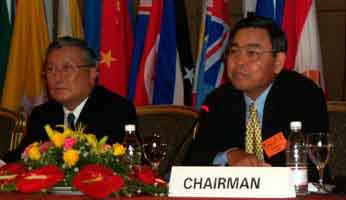 PRC Sustainable Development Solutions: Markets, Rights and Democracy ---"Grave Concerns" Conclusion - Part Six A May 1999 report from U.S. Embassy Beijing.
PRC Sustainable Development Solutions: Markets, Rights and Democracy ---"Grave Concerns" Conclusion - Part Six A May 1999 report from U.S. Embassy Beijing.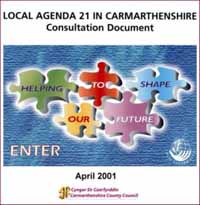 Direct British influence on Seattle's Local Agenda 21 Plan
Direct British influence on Seattle's Local Agenda 21 Plan
 President's Council on Sustainable Development: Chapter 5- Safe and Healthy Communities
President's Council on Sustainable Development: Chapter 5- Safe and Healthy Communities
 Global Vision: Sustainable City (formerly Zero Population Growth) Sustainable City is an international collaborative research endeavour to develop the world's first GIS (Geographical Information Systems) computer simulation programme for any town or city to see itself - and its surrounding environment - as a whole system. The project is now in development by Global Vision Corporation, a Non Governmental Organisation accredited to the United Nations Commission on Sustainable Development (CSD). It is part of the international follow-up to Habitat II - the Second United Nations Conference on Human Settlements (June 1996), where it was nominated as a Corporate Best Practice at the World Business Forum on Enterprise, the City, and Sustainable Development.
Global Vision: Sustainable City (formerly Zero Population Growth) Sustainable City is an international collaborative research endeavour to develop the world's first GIS (Geographical Information Systems) computer simulation programme for any town or city to see itself - and its surrounding environment - as a whole system. The project is now in development by Global Vision Corporation, a Non Governmental Organisation accredited to the United Nations Commission on Sustainable Development (CSD). It is part of the international follow-up to Habitat II - the Second United Nations Conference on Human Settlements (June 1996), where it was nominated as a Corporate Best Practice at the World Business Forum on Enterprise, the City, and Sustainable Development.|
Philippine Agenda 21 is the nation's blueprint for sustainable development. In concreting the vision, it describes a path for individuals, families, households and communities; an action plan for each ecosystem (coastal/marine, freshwater, upland, lowland, and urban); and across ecosystems in consideration of the interaction of the various lifescapes and landscapes found therein. The path is grounded on respect and active advocacy for the empowerment of the various social groupings of society to manage the economy, critical resources, society and culture, politics and governance and in the arena of foreign relations. Philippine Agenda 21 advocates a fundamental shift in development thinking and approach. It departs from traditional conceptual frameworks that emphasize sector-based and macro concerns. Philippine Agenda 21 promotes harmony and achieves sustainability by emphasizing. * A scale of intervention that is primarily area-based. The national and global policy environment builds upon and supports area-based initiatives. * Integrated island development approaches where applicable. This recognizes the archipelagic character of the Philippines which includes many small island provinces. * People and integrity of nature at the center of development initiatives. This implies the strengthening of roles, relationships, and interactions between and among stakeholders in government, civil society, labor and business. Basic sectors have an important role to play in achieving equity and managing the ecosystems that sustain life. PA 21 envisions a better quality of life for all Filipinos through the development of a just, moral and creative, spiritual, economically vibrant, caring, diverse yet cohesive society characterized by appropriate productivity, participatory and democratic processes, and living in harmony and within the limits of the carrying capacity of nature and the integrity of creation. PA 21 was adopted on 26 September 1996, with the issuance of Memorandum Order No. 399 by then President Fidel V. Ramos which identified the roles of the Philippine Council for Sustainable Development (PCSD) and each sector in the operationalization of PA 21. The action agenda is based on the imperatives of the current national situation and emerging landscape for sustainable development. PA 21 is a dynamic document that will continue to evolve as new challenges and opportunities emerge, as the level of consensus continue to deepen in the Philippine society, as the Filipinos attempt to solidify the framework, as the government continue to refine the processes, and as the Filipinos strive to widen and enrich their understanding of each other to pave the way for new modes of collaboration. |
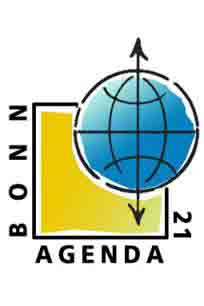 Office of Sustainablity - Local Agenda 21
Office of Sustainablity - Local Agenda 21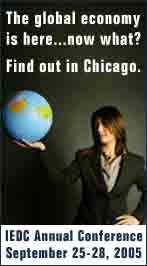 Hannover, Germany's Local Agenda 21 Plan
Hannover, Germany's Local Agenda 21 Plan
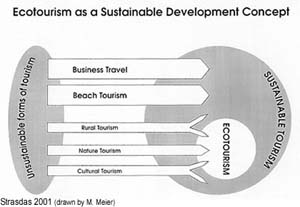 Ecotourism Links
selected by Claudia Fox. "Explore these links for a deeper understanding of Ecotourism."
Ecotourism Links
selected by Claudia Fox. "Explore these links for a deeper understanding of Ecotourism."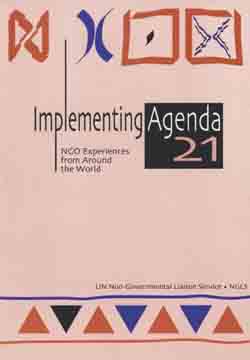 Civil Society aims described by the World Federalist Association of Northern California: This worldwide organization has a 2020 Global Peace Initiative whose aim is to create a culture of Peace by the year 2020. "This Initiative reflects a global vision of unity: one heart, one mind, working toward one goal. We are many races which form One race: the human race. Each and every one of us has a different place we call home: but ultimately this planet is our Home. While the name 2020 is symbolic, thereby working with and reinforcing positive mass conscious thought forms, it has also been chosen as a practical time-frame for humanity to work towards creating a culture of Peace. Princeton University's 'Great Experiment' which relates to measurement of emotion and directed thought appears to support what metaphysicians have claimed for years: our thoughts impact our reality. The 2020 Initiative calls on UN member-states and non member-states to support the 2020 Initiative through action, specifically:
2. Formulating a global constitution supporting this Initiative, 3. Opening the borders-i.e. allowing free movement and residence of all Beings."
Civil Society aims described by the World Federalist Association of Northern California: This worldwide organization has a 2020 Global Peace Initiative whose aim is to create a culture of Peace by the year 2020. "This Initiative reflects a global vision of unity: one heart, one mind, working toward one goal. We are many races which form One race: the human race. Each and every one of us has a different place we call home: but ultimately this planet is our Home. While the name 2020 is symbolic, thereby working with and reinforcing positive mass conscious thought forms, it has also been chosen as a practical time-frame for humanity to work towards creating a culture of Peace. Princeton University's 'Great Experiment' which relates to measurement of emotion and directed thought appears to support what metaphysicians have claimed for years: our thoughts impact our reality. The 2020 Initiative calls on UN member-states and non member-states to support the 2020 Initiative through action, specifically:
2. Formulating a global constitution supporting this Initiative, 3. Opening the borders-i.e. allowing free movement and residence of all Beings."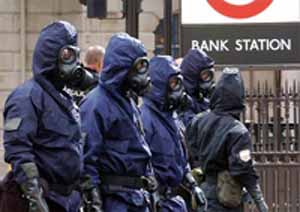 Sustainable Development Requires Peace.
Sustainable Development Requires Peace.
 Human Health, a Local Agenda 21 sub-topic.
Human Health, a Local Agenda 21 sub-topic.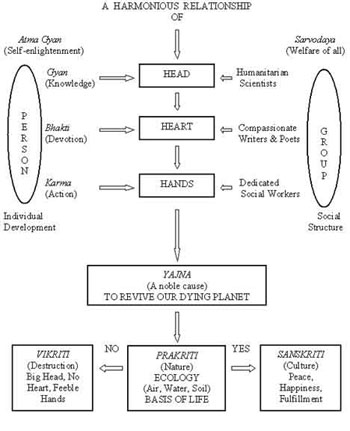 Holistic Development The Auroville Earth Institute, UNESCO Chair Earth Architecture.
Holistic Development The Auroville Earth Institute, UNESCO Chair Earth Architecture. "A leading American feminist and human rights activist, Bella Abzug (1920-1988) [pictured right] served in Congress from 1970 to 1976. In the years that followed, she headed the National Advisory Committee on Women, founded Women, USA, and co-founded the Women's Environment and Development Organization."
"A leading American feminist and human rights activist, Bella Abzug (1920-1988) [pictured right] served in Congress from 1970 to 1976. In the years that followed, she headed the National Advisory Committee on Women, founded Women, USA, and co-founded the Women's Environment and Development Organization."